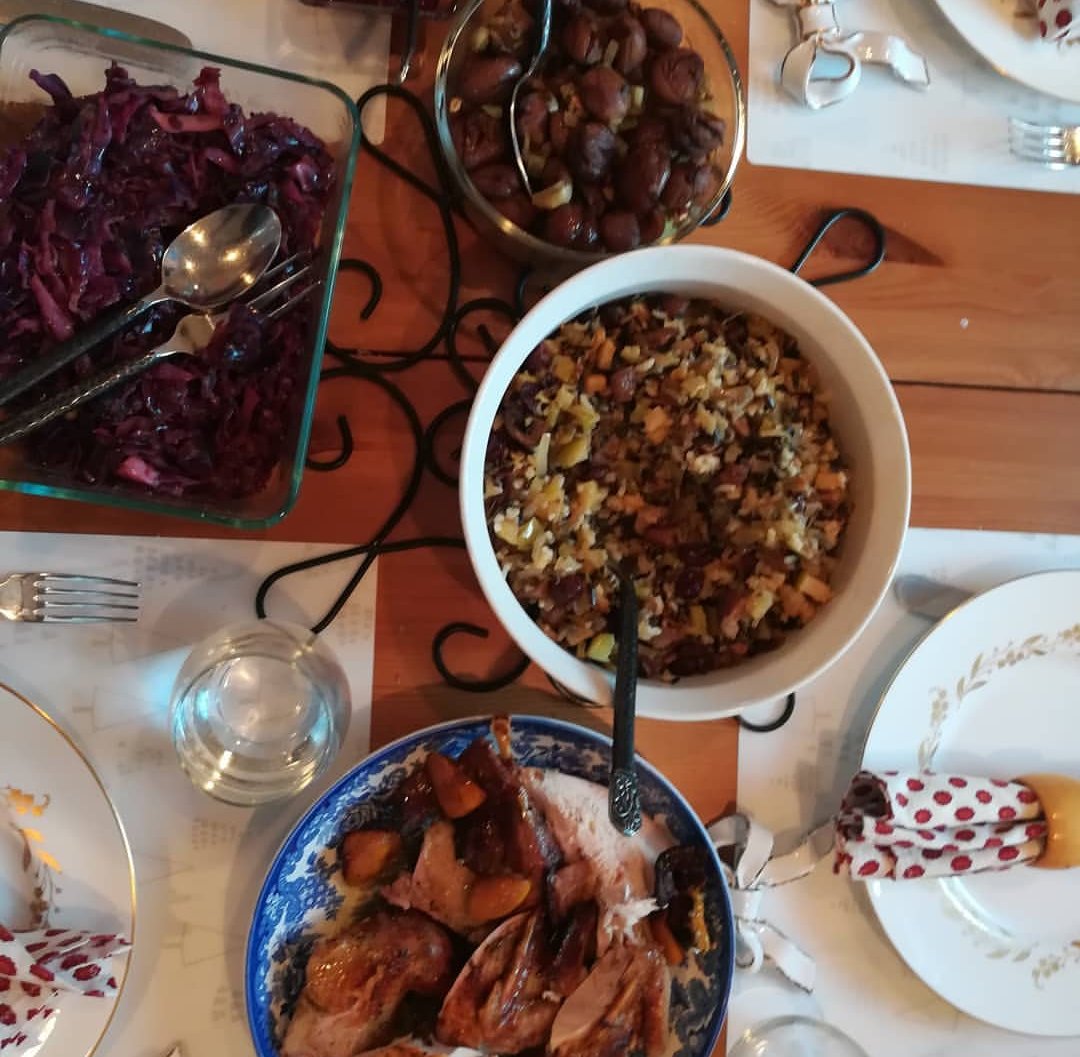As a kid I just wanted to know: why does the President pardon a turkey on live TV when everyone knows he’s just going to kill and eat another, unluckier turkey, but we just have to play along like he’s being the bigger person? When I got older, I realized that maybe we were learning the true meaning of Thanksgiving: collectively ignoring death to celebrate the goodness of a government official.
But my family didn’t like to dwell on those things anyway. It was really about the strange and particular food.
I remember my mother and my tiny self poring over Thanksgiving recipes like villagers who’d found a witch’s grimoire and weren’t sure what to do with it. The specificity of the list felt rigid and some items seemed ridiculous, ingredients for a ritual named Thanksgiving that might as well have included “eye of newt” and the “powdered horn of a unicorn.” Sweet potatoes? With marshmallows? As a side in a savory meal? Green beans are straightforward, but making gravy with FLOUR? Are you out of your mind? Why would you ruin perfectly good pan drippings with the nasty taste of flour? But hey, what else is there to do on the last Thursday in November? We eased cautiously into the traditional menu, starting with our own take on cranberry sauce: confiture d’airelles,which we spread on our breakfast toast as we did any other jam.
Over the years we started to buy into the ideals of sumptuous excess propagated by the holiday and got fancy. I’d doctor the cranberry sauce with orange peel, a cinnamon stick, a swig of the Grand Marnier gathering dust in the bottom of a cupboard. Because French people often eat turkey and roasted chestnuts for Christmas, we had to have chestnuts, which we bought peeled and jarred and then stir-fried with white wine. My favorite dish, before I became a vegetarian and was relegated to side dishes, was offal; my family would save one of the turkey livers just for me.
There were times when I felt like maybe everything was too tasty. I was a teenager hell-bent on eating less, but on holidays every food was so special; my mother or grandmother would have put such effort and skill into each dish that I’d have felt as guilty for not finishing my plate as I felt ashamed for finishing it. I would eat to avoid conversations, because you’re not supposed to talk with your mouth full (where are you going to go to college? And who are your friends? What about your love life?). I would drink a glass or two of wine thinking it would help me relax but I just felt more swollen with excess.
Eventually, I would start to feel funny, go outside for air and walk around the block in the dark, shoes crunching on the frosty grass, and my addled and juvenile mind would grope its way towards some vague notion that it was foolish to observe this propaganda holiday at all. But then I would go inside and sullenly eat several slices of pie and fall asleep. The next morning I would wake up and mechanically head to the kitchen even though I wasn’t hungry, because it was breakfast time, and I would start to think about all the ways I was just doing things to kill time until the next hour or the next day, filling the time like you fill a sinkhole with sand until there’s no space left. But then my stomach would grumble, and I would have another piece of pie for breakfast, just because this was America and I could.
Emily Lever






